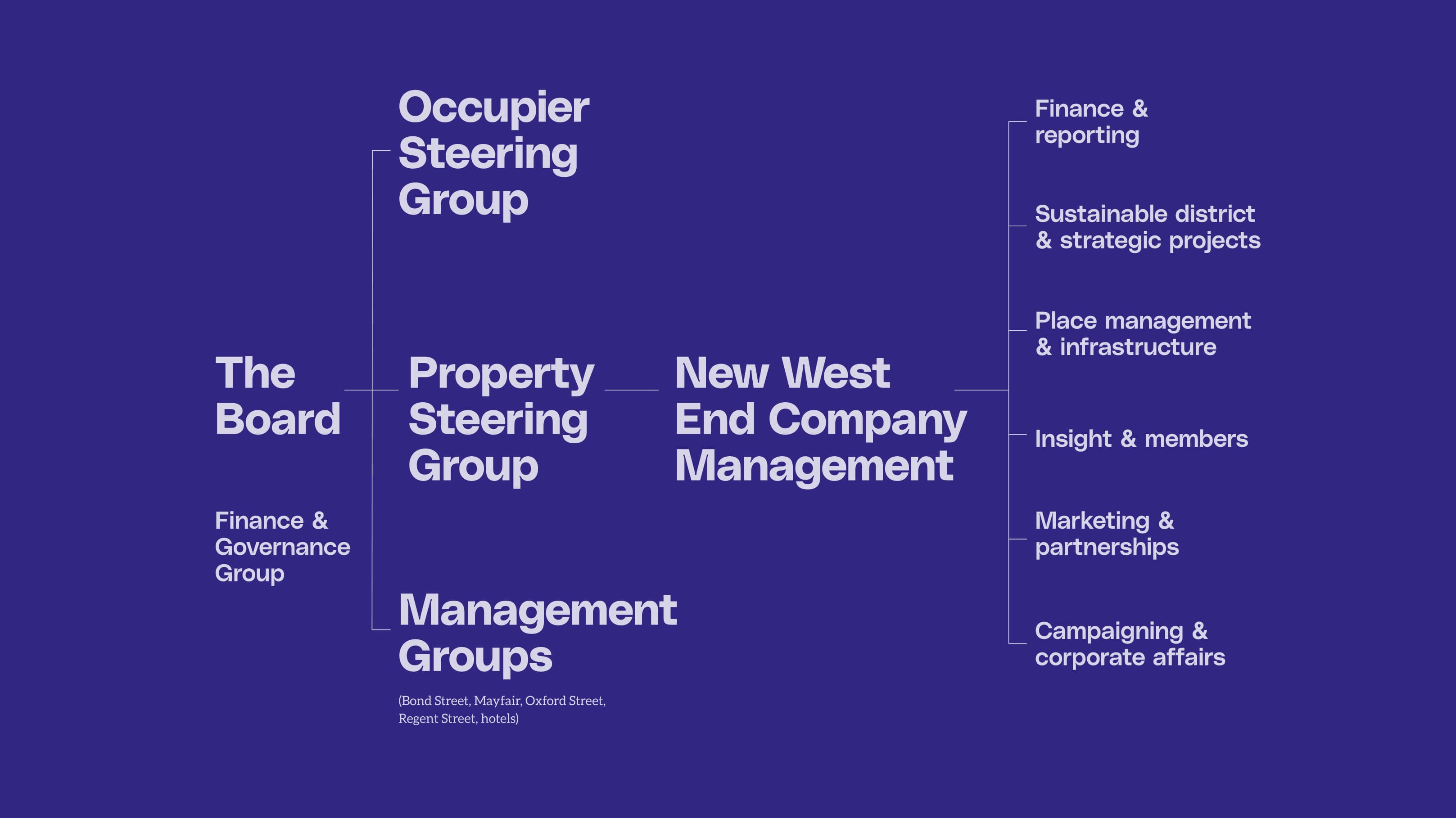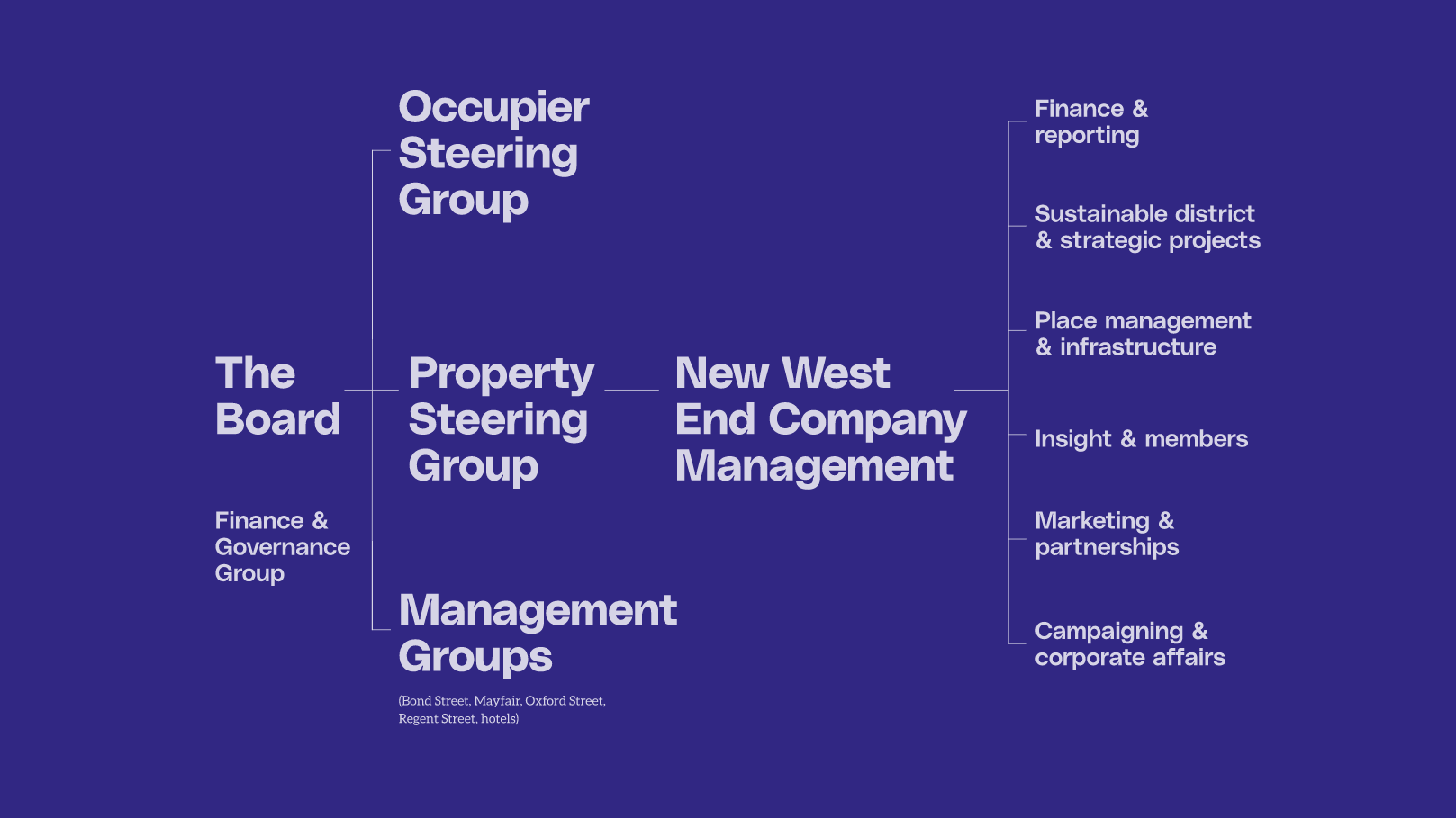

We are committed, where appropriate, to meeting the corporate governance principles set out in the UK Corporate Governance Code.


The summary below outlines the purpose of our Board and its members as well as roles and responsibilities. It is to be distinguished from the day-to-day operational management of the company by full-time executives.
Members can offer feedback on our services through a number of channels:
Our board, chaired by Sir Peter Rogers, oversees the strategy and delivery of our business plan to ensure a better future for West End businesses. All BID members can request a copy of our latest Board minutes.
Declaration of Interest: All board members disclose any conflicts of interest at the start of each Board meeting.
Click below to read our Articles of Association and to view the minutes from our 2021 Annual Meeting.
All financial decisions of the Strategic Board are agreed through our Finance & Governance Group. These are available by contacting nicola.gibson@newwestend.com
View our Audited Accounts below
View our year-by-year activity and deliverables
Note: the above is for general guidance only and is not a comprehensive list of all activities and discussions which might be deemed in breach of the relevant competition law legislation.
New West End Company is compliant under the Institute of Place Management’s The BID Foundation Industry Standards.